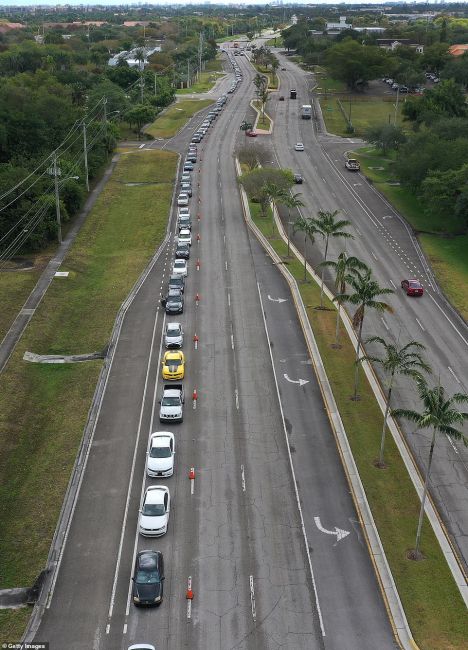Why China Leads the World
 Billy Bob's Dispatches
Billy Bob's Dispatches
INTRODUCTION BY PATRICE GREANVILLE
Justice and decency are not considerations rspected and honored by the Western powers. Thus, almost to a man, Western "experts" and pundits defame China, negating her enormous accomplishments, and all too frequently injecting suspicion and hostility toward its leaders and way of life. It's all part of a deliberate campaign of demonisation provoked by China's economic success. The Empire sees in China a possible relacement for the role of global hegemon—even if China is not really interested in such roles, and, as our audience well knows, Beijing is first and foremost a multilateralist power.
The avalanche of perfidious lies against China (along with the same treatment accorded other independent nations such as Russia, Iran, Venezuela, etc.) requires a pushback, and it is in this crucial category that Godfree Roberts stands out. Seemingly indefatigable, Roberts is a witness to China's rise we can trust. His book's Chapter 5, ‘Leadership,’ says a lot about China's character and may open the eyes of many Americans and others whose minds have been poisoned by unrelenting and dishonest propaganda, the kind of propaganda calculated to promote hatred and ultimately war. This, I should state for the record, is a Nuremberg-type crime. The WW2 Allies, of which the US was once a critical member, hanged Nazis and Japanese fascists for promoting wars of aggression. Given the treacherous and bloody record of the Anglo-Americans since the close of WW2, it is logical that, should another Nuremberg tribunal ever arise, we might expect to see many of their leaders and enablers in the dock. And that should include the disinformers who seeded the soil for international discord. That day, however, may be in the distant future, if ever. The Anglo-American juggernaut may take a long time to weaken enough to be subject to either drastic internal change or elementary justice. Meanwhile, learn how to spot and reject (and defuse) the Big Lie. Get acquainted with the way China really is. Our own Associate Editor, Jeffrey J. Brown, has written an impressive and accessible volume on this subject, China Rising: Capitalist Roads, Socialist Destinations. I highly recommended it. But now it is our colleague Godfree Roberts who adds to this invaluable stash with his own volume. Doing justice to a book of this type is not easy; I found many passages simply memorable. I was often astonished by many of the facts that Roberts brings to the fore in his narrative. The earlier part, for example, describes what Chinese children need to memorize–the nation’s IQs and so forth–which is most impressive, but Chapter 5 is my favorite.– P. Greanville.
By Billy Bob
 "Why China Leads the World demolishes the fake, anti-China narratives that have become unavoidable in the West and obligatory components of every Western newscast..."
"Why China Leads the World demolishes the fake, anti-China narratives that have become unavoidable in the West and obligatory components of every Western newscast..."
The US and the UK have never had guidance such as that provided by the Mandate of Heaven, nor is the Divine right of rulers comparable–one reason the West greatly underestimated the stability of what they view as an autocratic government. Today, as the US nears the end of a 250 year run, the Chinese, whose great dynasties lasted an average of 250, is at the beginning of theirs. The West now needs to reinvent itself and begin serving the people, not just the wealthy, if it hopes to compete. The US Constitution is a business plan, not Sacred Writ. The US political system of electing unqualified amateurs to do the most difficult job on earth is as obsolete as selecting army generals based solely on their degree of relatedness to the King. Both practices are obsolete for the same reason: professional politicians will beat amateur politicians as often as professional generals will beat Crown Princes on the battlefield. It’s no contest.
This book is packed with gems like that, as anyone already familiar with Godfree Roberts’ work knows: he is one of the world's foremost English speaking China experts.
I first encountered his writing four years ago while struggling to achieve a measure of socio-political understanding and to sort out historical and political fact from fiction. I read one of his pieces, Mao Reconsidered, and remember being struck by the article's thesis which was compellingly argued and the exact opposite of the way popular culture had influenced my perception of reality: "it’s doubtful that Mao killed anyone and indubitable that he gave life to billions. Indeed, no-one has done so much good for so many–and so little harm; no-one comes close."
I returned to this article and shared its contents multiple times on social media and made sure to read every one of his articles. I subscribed to his weekly newsletter because nowhere else could I find such a breadth and depth of real-world data, analysis, and useful information about China. When I learned he had a book coming out, I read it as soon as it became available on Amazon. In my opinion, it was high time he compiled his work in a single volume that comprehensively put forth the historic and contemporary reality which has been criminally obfuscated by Western mass media.
Why China Leads the World demolishes the fake, anti-China narratives that have become unavoidable in the West and obligatory components of every Western newscast. I can't count the times I've seen a particular anti-China story and thought to myself "I wonder what the truth on this is?" before googling the topic together with Godfree's name. In my mind and in the minds of countless others, Roberts' name is synonymous with truth and insight regarding China.
Be warned, however. This is a serious, even profound, book. In 300 pages, 23 chapters, and 432 footnotes he covers Chinese civilization from child rearing to leadership, legal history, trade and commerce, diplomacy and defense. On the basis that a picture is worth a thousand words, he scatters high-definition charts throughout the book, like this shocker (which he explains):
The China he describes and contextualizes is nothing like the caricature of China in the Western press. He deconstructs the sinophobic pillars of Western discourse and lays bare for the frauds they clearly are. This book is essential reading–especially as the new cold war between China and the West begins to heat up.
ABOUT THE AUTHOR
 Below:
Below:
Excerpts from G. Roberts' Why China Leads the World.
Chapter Five
Chapter Five
Leadership
The art of governance lies in attracting men of moral integrity, the kind who are only drawn to rulers who demonstrate moral integrity in their own lives. And how do rulers demonstrate moral integrity? B y doing their duty and practicing compassion. Confucius. The Doctrine of the Mean.
 As has been the case since the birth of Christ, China is governed by a Confucian just hierarchy that is designed to weed out sociopaths and recruit able, compassionate people willing to sacrifice their lives in service to the people.
As has been the case since the birth of Christ, China is governed by a Confucian just hierarchy that is designed to weed out sociopaths and recruit able, compassionate people willing to sacrifice their lives in service to the people.
So it is not surprising that, instead of viewing the State as intrusive, untrustworthy, and threatening, the Chinese see themselves belonging to a family-state and view their politicians as family patriarchs. Under such leadership, they value collective over individual wellbeing, the future over the present, pragmatism above ideology, and outcomes over promises–a value system that provides social cohesion and has made China the richest, strongest nation on earth for most of its existence.
***
Today, in place of the Emperor, morally outstanding people guide the nation’s destiny: the ninety-three million Communist Party members whose code of conduct resembles Rotary International’s: service, integrity, world understanding, goodwill, and peace. They have sworn “To bear the people’s hardships first and enjoy their comforts last,” despite the fact that membership in the Party is no more profitable than in Rotary International’s, and admission is more restrictive.
During the three-year application process, candidates explain their motives for applying; attend weekly classes in Party history and ideology; volunteer for local chores; list their shortcomings; detail their families’ personal, financial, and political information; earn recommendations from two Party members; and supply character references from two non-relatives who guarantee their moral integrity for life.
Most university graduates apply, but only one-tenth gain admission. “I was very excited,” said Allen Lin, a twenty-three-year-old college senior who credits his admission to his high grades, service to student government, and assistance to classmates, “Joining the Party is not easy–of the forty students in my class, only five were admitted”. “It took me two years,” said another graduate, “There were seventy-eight people and my party branch only recruited three. I wanted to join because it is really rare, a small group of people, and because I have a deep faith in the Party”. Yet the People’s Daily regularly laments the shortage of youthful altruists and quoted one disillusioned applicant, “Many student members have little rigor and only a very shallow understanding of Party discipline. I was taught when I was young that the Party represents justice and that cadres are more dedicated in their jobs, but I found that students join because they want to work for a state-owned company or become an official”.
Forty percent are women, one-third are ‘exemplary farmers, herdsmen, and fishermen,’ one quarter is white-collar workers, one-sixth retirees, one-eighth civil servants, one-tenth are ethnic minorities. Between them, members contribute a billion dollars in annual dues and billions of volunteer hours, usually conducting surveys on rainy Sunday afternoons. They declare their membership on job applications because private firms appreciate the Party’s thorough vetting. Though one-tenth will become officials, professors, generals, CEOs, or celebrities, most will simply mobilize support for new policies or volunteer in emergencies.
Their ability to mobilize is impressive. In 2000, China’s application to join the World Trade Organization triggered public demonstrations since membership would disadvantage agriculture, undermine cherished industrial policies, and destroy eleven million jobs.
For the first time, the Party invited exemplary capitalists to join its ranks and taught them the Five Unifiers: unified understanding so that everyone knows why China needs the WTO; unified policy so that everyone understands the local problems WTO membership cause; unified planning to coordinate different interests in applying WTO provisions nationally; unified direction so that leaders take direction from the next unit above; unified action so that, once consensus is reached, everyone at every level simultaneously applies their energy to solving WTO-related problems. The capitalists committed to hiring displaced workers, which swayed popular opinion, and China joined the WTO.
The Party is equally impressive in local emergencies. One night in 2010, a Shanghai high-rise fire killed fifty-eight people. Before dawn, members had coordinated twenty-five fire stations, a hundred fire trucks, and a thousand firefighters along with police, hospitals, finance, insurance, housing, donations, counseling, criminal investigators, and schools. Forty-eight hours later, state-owned insurers compensated families for lost property and wrote $250,000 checks for each death. Ten days later, Shanghai mayor Han Zheng confessed, “Our poor supervision of the construction industry caused the fire”. He implemented new building codes, fired or demoted thirty officials, and indicted twenty-two, most of whom went to prison, two for sixteen years. The contrast with London’s Grenfell Tower fire is stark.
The Party’s principle responsibility, however, is the nation’s future. Its 2015 report, abbreviated here, reveals priorities rarely discussed in the West [emphasis added]:
-
Sustainability Led by Science and Technology: the overriding mission of early-stage socialism is liberating and developing the forces of production. Socialism requires a minimal foundation of material and technological development, so science and technology's determining effect needs to be fully understood. We should recognize the strategic importance of science and technology in allocating scarce resources.
-
Orienting Production to Improving Ordinary People’s Livelihood: the principal contradiction in socialism at its earliest stage is between people’s increasing material and cultural needs and the backwardness of social production. This can only be overcome by the speedy, steady development of productive capacities–socialism's primary task in its initial phases. Improving people’s livelihoods is an endless task, and new challenges continuously emerge... We should realistically assess the effects of our actions on living standards and ensure that public services create a reliable social safety net. Our objective must be a society in which all people contribute to the satisfaction of human needs to the extent they are able while enjoying access to the material, social, and spiritual resources they need for the full development of their human potential in accord with the needs of sustainability.
-
Public Ownership Takes Precedence in National Property Rights: The institutional guarantee for all Chinese people is that they will share the fruits of development... This principle highlights a fundamental difference between the socialist economy and the modern capitalist economic system, in which private ownership is dominant. We should learn from past errors of state-sector reform that allowed a narrow elite to amass huge fortunes by misdirecting funds. The collective and cooperative model of Chinese village economies needs further investment. New policies must be introduced to enhance the vitality, competitiveness, and risk management of the public economy.
-
The Primacy of Labor in the Distribution of Wealth. In any capitalist economy, wage laborers are paid only for their labor power expenditure–not for the value of the commodities they produce. Under these conditions, the specific wage a worker earns is associated with their position and performance... The distribution of wealth in our Chinese socialist economy must be guided by the needs of labor, not capital. We must strive against exploitation and polarization, bridge the income gap, and increase income for all citizens coincident with economic growth and labor productivity. It is vital to establish a sound, scientific mechanism for determining wage levels and a means for regular wage increases.
-
Market Principles Steered by the State. The anarchic character of the capitalist market combined with individual capitalists’ drive to innovate to reduce labor costs leads to periodic crises of overproduction in which workers suffer most... The government’s responsibility is keeping macroeconomic policy steady, strengthening public services, guaranteeing fair competition, reinforcing market supervision, promoting collective prosperity, and rectifying–or compensating for–market failures.
-
Speedy Development with High Performance: A low growth rate with insufficient resource use inhibits full employment, wealth accumulation, and public welfare. A higher growth rate with extensive rather than intensive resource utilization is equally detrimental to ecological sustainability and distributive justice. We need a dialectical analysis of indices based on the gross domestic product, GDP.
-
Balanced Development with Structural Coordination: We must abandon the persistent misconception that, if we eliminate economic surplus caused by administrative intervention, excess production capacity, and product surplus formed by marketization can be balanced automatically without government intervention. This neoliberal fallacy and its consequences explain the large structural excess capacity in the economy and go against the spirit of Chinese socialism.
-
Economic Sovereignty and Openness: A final principle is to open the economy to trade and investment because it is beneficial to economic growth at home and abroad, optimizing the allocation of resources and improving interactions between industry and technology. However, developing countries should devote particular care to their strategies and tactics when opening up to developed countries, given the risks and uncertainties inherent in such an unequal relationship.
Critics may carp about its pervasive presence, but the Party keeps its promises. By 2021, the centennial of its founding, everyone in China’s lowest income bracket will own a home and have a guaranteed income, plenty of food and clothes, safe streets, health insurance, a pension and old age career. Their children will graduate high school three years ahead of ours and live longer healthier lives.
***
In addition to the moral uprightness required for Party membership, government officials must demonstrate extraordinary intelligence, competence, and self-discipline. They earn their positions in a relentless competition that begins in primary school and ends when–out of eight million annual university graduates–the brightest apply for the civil service. The top thirty thousand scorers spend weeks in interviews to demonstrate their capacity to learn and solve problems using logic, intuition, creativity, experience, and wisdom. The twenty-seven thousand who succeed (most with IQs above 140) will earn their first promotions after they have lived in poverty-stricken villages and raised local incomes by fifty percent.
Why the Communist Party Sent Me to the Desert
by Heng Xiao
My adventure began with a phone call late one summer night. It was my boss, the deputy director of the state-funded Institute of International Studies. He had some unexpected news. The personnel department of our Academy had selected me as a candidate for its Grassroots Service Program (GSP) in one of China’s most underdeveloped provinces, located some 1,500 miles from where I was living in Beijing. Before hanging up, he gravely informed me that all of my peers had refused to join the program–leaving me with little choice but to accept the offer. What followed was an incredibly difficult decision for me. As a sophomore researcher, I had spent the past year doing staff work instead of academic research, and I feared I might have fallen behind my colleagues. After consulting my wife, we agreed that my boss's call was to inform me of my participation in the program, not to ask my opinion on the matter. I reluctantly called back and accepted his offer. In hindsight, most of us–the 17 researchers who accepted GSP posts–wished we had never received that call.
The GSP’s Chinese name is guazhi. Guazhi means “to hang your position,” in the way one hangs a coat, and it is a common phrase among China’s state-sponsored entities, including research institutes like the one I was part of. It involves temporarily moving to a new position for at least a year, while your old job is guaranteed upon your return. At the time, it was common practice for young China Communist Party (CCP) members to take on this responsibility at some point. This temporary job sometimes has no relation at all to the cadre’s previous field of work. For example, it would not be unusual for a researcher on US foreign policy to be asked to manage rural development in the Gobi Desert. The guazhi program is based on the traditional Chinese belief that different experiences lead to real knowledge and make a man competent. In its most radical form during the Cultural Revolution, this traditional belief was manifested as the ”Up to the Mountains and Down to the Countryside” movement. During the Cultural Revolution, universities and colleges in China were closed, and urban youth were sent to poor, remote rural areas to, in the words of Mao Zedong, ”learn from ordinary people”. Although far removed from the modern-day GSP, the intention is similar: namely, a notion that the most thorough education comes from diversified experiences...
Local officials were waiting for us at the airport when we landed at our destination on December 1. After a short rest and a dinner full of animated speeches, we–the 17 exhausted researchers–were dispatched to our new homes by town officials. Upon getting in the car, I was told that I would be working almost 13 miles from the urban area. During our drive along the rugged country road, I had a good talk with one of my future colleagues, the town’s Party committee's vice-secretary. At one point, he asked me a strange question, “Secretary, where will you live in the city? Will the municipal government rent you an apartment?” It seemed that my future colleagues did not even know I was required to live where I worked. I began to realize that there would be no bedroom, no bathroom, and no nice furniture waiting for me. It was immediately apparent upon arriving at the town hall that I had been right in my premonitions, which did not make me happy at all. There was no breakfast or dinner provided, and I wasn’t allowed to cook in the office. There was no hot water and no heating at night, despite temperatures of minus 20 degrees Celsius. I later reflected that the outdoor toilet I had noticed upon entering was the least of my worries compared with the other problems. On the plus side, my office was bright”.
As Heng Xiao rises–from section chief, deputy division chief, division chief, deputy director and director of general office, vice-minister, minister, deputy-state leader to state leader–his demonstration of the Confucian virtues–compassion, righteousness, propriety, wisdom, and fidelity–will be increasingly scrutinized. Zhao Bing Bing, a mid-level official in Liaoning Province explained the process to Daniel Bell:
I was promoted in 2004 through my department’s internal competition (30 percent on written exam results, 30 percent on interviews and public speaking, 30 percent on public opinion of my work, and 10 percent on education, seniority, and my current position) and became the youngest deputy division chief. In 2009, Liaoning Province (pop. 44 million) announced an open selection of officials in the national media. Sixty candidates met the qualifications, the top five of whom were invited for further interviews. Based on their test scores (40 percent) and interview results (60 percent), the top three were then appraised. The Liaoning Province organizational department sent four appraisers who spent a whole day checking my previous records. Eighty of my colleagues were asked to vote–more than thirty of whom were asked to talk with the appraisers about my merits and shortcomings–and they submitted the appraisal result to the provincial Standing Committee of the CCP for review.
In principle, the person who scored the highest and whose appraisals were not problematic would be promoted. However, because my university major, work experience, and previous performance were the best fit for the position, I was finally appointed department chief of the Liaoning Provincial Foreign Affairs Office even though my overall score was second-best [the government discriminates positively in promoting women–ed]. Before the official appointment, there was a seven-day public notice period during which anybody could report to the organization department concerns about my promotion. I didn’t spend any money during my three promotions; all I did was study and work hard and do my best to be a good person.
In 2013, thanks to an exchange program, I worked temporarily in the CCP International Department. The temporary exchange system offers opportunities to learn about different issues in different regions and areas like government and SOEs. In a famous quote, Chairman Mao said, “Once the political lines have been clearly defined, the decisive factor will be the cadres [trained specialists]”. So, the CCP highly values organizational construction and the selection and appointment of specialists. There is a special department managing this work, The Organization Department, established in 1924, and Mao was its first leader. The department is mainly responsible for the macro-management of the leaders and the staff (team building), including the management system, regulations and laws, human resource system reforms—planning, research, and direction, as well as proposing suggestions on the leadership change and the (re)appointment of cadres. Also, it has the responsibility of training and supervising cadres. The cadre selection criteria are: a person must have ‘both ability and moral integrity and the latter should be prioritized’. The evaluation of moral integrity focuses mostly on loyalty to the Party, service to the people, self-discipline, and integrity. Based on different levels and positions, the emphases of evaluation are also different. For intermediate and senior officials, the focus is on their persistence in faith and ideals, political stance, and coordination with the central Party. High-level cadres are measured against great politicians, and, among them, experience in multiple positions is very important.
Though their perquisites–overseas education for offspring who flunk the gaokao–improve as they rise, officials’ salaries are niggardly: the President earns sixty-six thousand dollars, yet the track records of the top one thousand politicians, available online, are impressive. Most began their careers in the late sixties as manual laborers in dirt-poor villages. After doubling the incomes of those they served, they were promoted to run huge provinces; Fortune 500 corporations, Universities, and space programs. They spent sabbaticals on the leafy, lake-studded campus of The Academy of Governance, earned PhDs, met the World’s leading thinkers, critiqued senior officials' policies, and studied at Harvard, Stanford, Oxford, Cambridge, or the University of Tokyo. Since that was the current President’s path, let us take this opportunity to meet him. [Chapter 6, Xi Jinping’s biography, introduces his famous father, tells how he grew up in the poorest village in China, and traces his 30-year career in obscurity].
[premium_newsticker id="211406"]
The views expressed are solely those of the author and may or may not reflect those of The Greanville Post
YOU ARE FREE TO REPRODUCE THIS ARTICLE PROVIDED YOU GIVE PROPER CREDIT TO THE GREANVILLE POST
VIA A BACK LIVE LINK.
















Show less